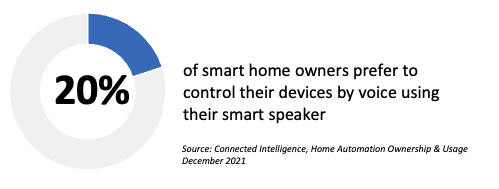
iHome Shuts Down Smart Home Service
Following the recent news that Insteon has exited the home automation business (and the business of supporting existing customers) iHome has confirmed to The Verge that they too ended support for several of their smart home devices including smart plugs, leak sensors, motion sensors, and door/window sensors. The company gave no indication of support beyond the April 2 termination date, leaving owners of the devices with bricked products. iHome gained popularity in the home automation market with their price friendly products and early support for Apple’s HomeKit.
The NPD Take:
- With just over $600k in home automation revenue over the last 12 months, iHome was a smaller industry player. However, as sellers of price friendly devices (and early partners of Apple through their speaker business) the company built a solid reputation in the market- especially among Apple devotees.
- The exit of iHome from the market along with Insteon and other brands in recent years suggests the top heavy nature of the home automation market is driving out smaller competitors. As technology devices are increasingly interconnected to each other and to the cloud, manufacturers must be mindful of the users of their devices- even after the purchase at retail.
Google Launches an Alexa Skill For Its New Devices
As the world waits for the Matter spec to finally roll out to consumers, Google has officially launched a new “Google Nest” skill for Amazon Alexa, allowing Alexa-enabled devices to control its newest Nest-branded smart home products. The skill will enable control of new Nest Cams (battery, indoor, wired, and floodlight) as well as the new battery powered Nest Doorbell. This updates an existing integration with other Nest products. With this skill, users can access their newest Nest devices via Alexa enabled speakers, hubs, Fire TV devices, and tablets.
The NPD Take:
- Though many consumers are aware of the limitations of device interoperability, most are still compelled by product, price and brand when shopping with ecosystem considerations less top of mind. As a result, many households are ‘blended smart homes’ with brands and products from multiple platforms.
- Matter is poised to make technology considerations easier for consumers at retail. In the meantime, companies that open their ecosystems to blended households can increase users to their platforms while also benefitting their existing customers.